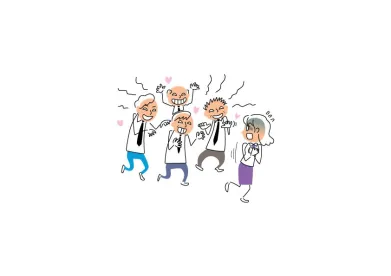Buried within a budget bill signed by Governor Andrew Cuomo on April 12, 2018 are some major changes for all New York employers in the area of Sexual Harassment. Part KK of Senate Bill 7507-C makes six changes to New York Law. Some pieces of the law went into effect right away, some are delayed until the following dates: July 11, 2018, October 9, 2018 and January 1, 2019.
Effective Right Away:
-
Contractors and Their Employees are Now Protected
There is now an obligation to protect non-employees from being exposed to sexual harassment within an employer’s workspace. Contractors, subcontractors, vendors, vendors and all other persons providing services in an employer’s workplace, and their employees are now protected against being subjected to sexual harassment, and have remedies under the New York Human Rights Law for violations. S7507-C, Part KK, Subpart F.
-
Government Officials Must Use Private Funds for Harassment Settlements and Damages
Government officials and employees may not look to public funds to resolve claims against them, and any judgment against government official or employee that is paid for by a governmental agency, state or local, must now be reimbursed by the offending government official or employee. S7507-C, Part KK, Subpart C.
Effective July 11, 2018:
-
Non-Disclosure Agreements Regarding Sexual Harassment Settlements are Not Favored
Effective this Summer, New York will prohibit confidentiality and non-disclosure agreements of sexual harassment claims unless the agreement process complies with its statutory protocol. First, the confidentiality provision must be “the complainant’s preference.” Second, the confidentiality clause must be provided to the settling individual for review for a period of 21 days, followed by a revocation period which must be at least seven days. This waiting and revocation period mirrors the requirements of the Older Workers Benefit Protection Act (OWBPA), governing age discrimination waivers. But there are differences. Because the confidentiality clause cannot be signed until twenty-one days have lapsed, it appears that the length of the review period cannot be shortened. Neither the employee nor the company should execute the agreement until the twenty-one day period has lapsed. S7507-C, Part KK, Subpart D.
This law will have broader impact beyond releases for sexual harassment claims. Very often, a general release sought upon termination of employment includes a release of all claims, with a specific reference to the New York Human Rights Law, and a confidentiality obligation, which could encompass sexual harassment claims. Because of this, where there is a confidentiality provision, there should be language added that the confidentiality provision does not apply to those facts and matters that cannot be kept confidential by law. Companies will have to determine whether the general release covers a potential sexual harassment claim in a particular case and, if so, follow the requirements discussed above.
-
Arbitration (though likely pre-empted)
Also effective July 11, 2018, Article 75 of the New York Civil Practice Law and Rules prohibits arbitration agreements that would force disputes about sexual harassment into private arbitration. The prohibition, however, has an exception: “where inconsistent with federal law.” S7507-C, Part KK, Subpart B. That carve-out appears to recognize the U.S. Supreme Court’s general hostility toward states that seek to limit the applicability of the Federal Arbitration Act, 9 U.S.C. §§ 1 et seq. See Kindred Nursing Centers Ltd. Partnership v. Clark, 581 U.S. ___, 137 S. Ct. 1421, 197 L. Ed. 2d 806, (2017). Accordingly, unless and until the United States Congress passes a bill prohibiting the private arbitration of sexual harassment claims, this attempt to prohibit private arbitration of sexual harassment claims will likely be pre-empted by federal law.
Effective October 9, 2018
-
Adoption of Sexual Harassment Policy, Complaint Procedure and Mandatory, Interactive Training
The most expansive requirement imposed by Part KK of the budget bill is subpart E. This law amends the Human Rights Law in the following respects:
The Commissioner of Labor and the New York State Human Rights Division are compelled jointly to draft a model sexual harassment policy, and every employer must adopt that policy or its own policy that equals or exceeds the model policy to be published by the State. The policy must:
– Prohibit Sexual Harassment
– Advise employees of remedies available for violations of sexual harassment law, including reference to federal, state and local law
– Provide a complaint form
– Articulate an investigation procedure
– Inform employees of all forums available to them, both administrative and judicial
– Articulate that employees who engage in sexual harassment will be deemed to have engaged in misconduct
– Prohibit retaliation for making complaints, or for testifying or assisting in any proceeding
The Commissioner of Labor and the New York State Human Rights Division are compelled jointly to create a model sexual harassment training program, which shall be interactive, and shall:
– Explain what sexual harassment is
– Provide examples of sexual harassment
– Explain federal and state law and remedies available under those laws
– Explain employees’ “rights of redress and all available forums for adjudicating complaints”
– Additional information must be provided to supervisors
All employees must be trained annually regarding sexual harassment, using either the state’s training program, or one that “equals or exceeds” the state’s model training program.
Effective January 1, 2019
-
Government Contracts
As part of the state government work bidding process, all bidders starting in 2019 must certify that the bidder has adopted a written sexual harassment policy and provides training to all employees regarding sexual harassment. In no-bid situations, the state agency is allowed the discretion to demand the same certification.
New York City is also enacting Sexual Harassment laws, mostly duplicating the new state requirements, except that effective in 2019, new employees must receive sexual harassment training within 90 days of their hire, and the City will issue a mandatory poster that addresses sexual harassment. The poster law will take effect 120 days after New York City’s Mayor signs the law, which is expected to happen at any time.




 />i
/>i

